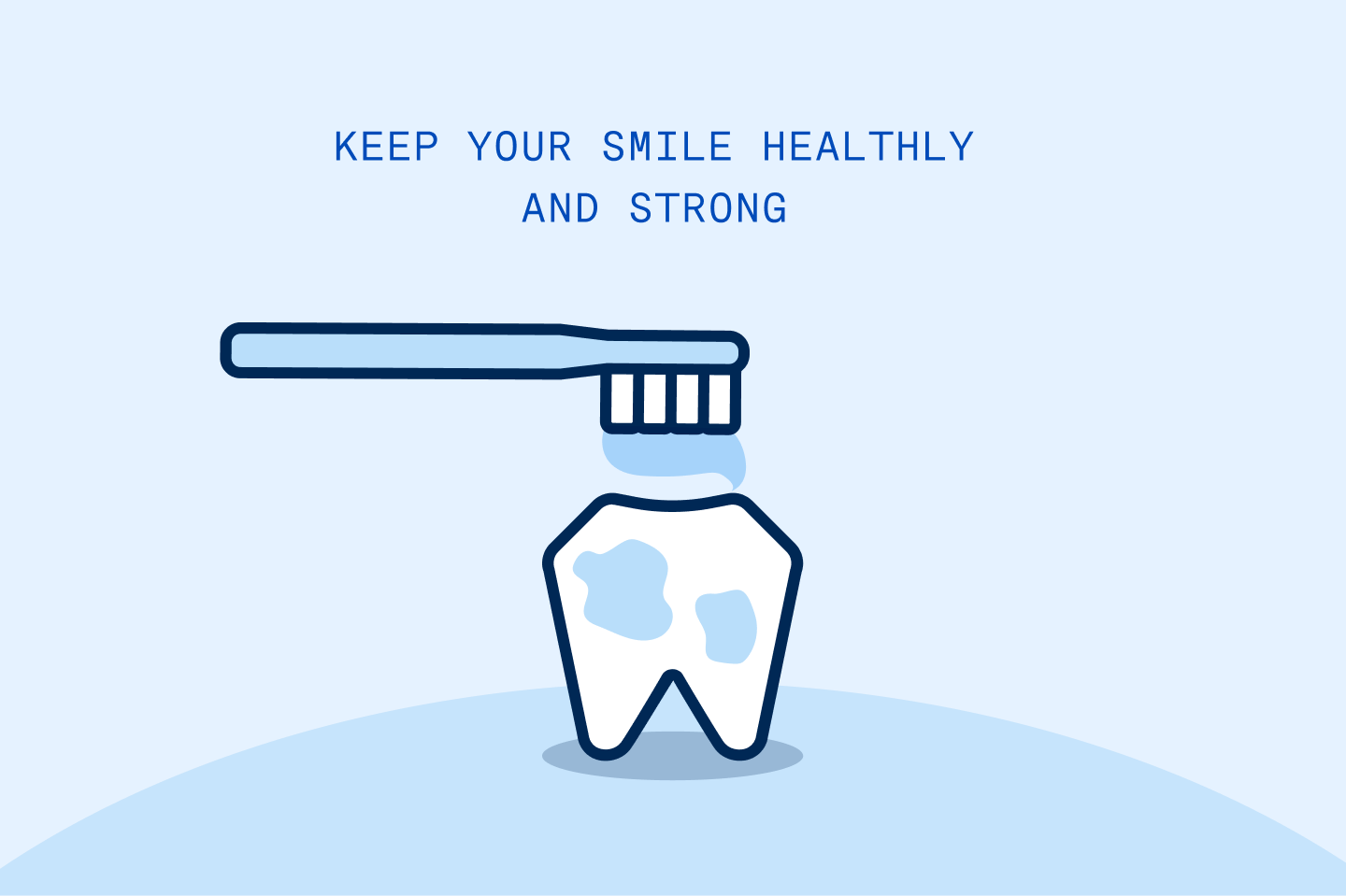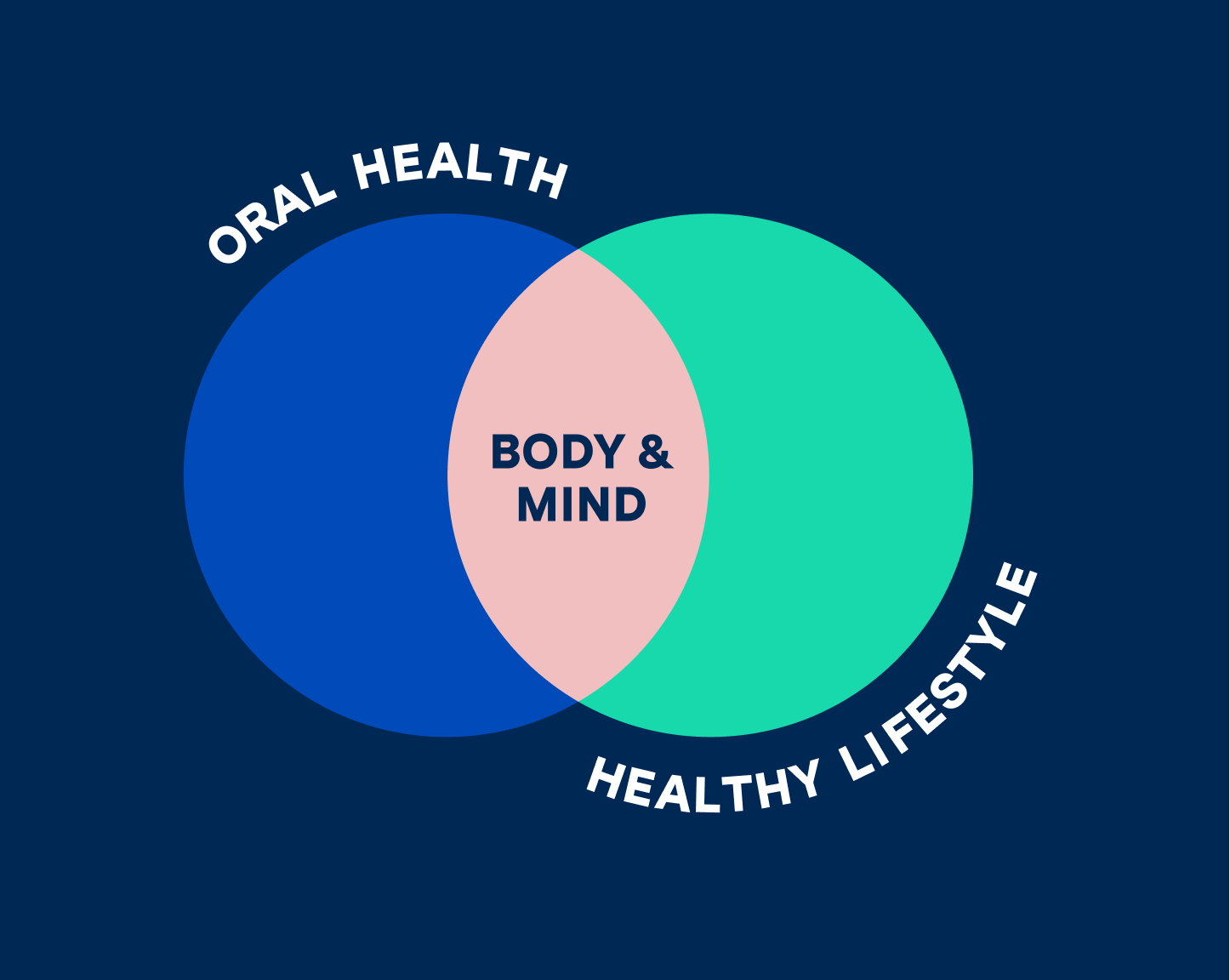How oral health impacts overall health
Beyond enjoying a beautiful smile—your oral health plays a much greater role when it comes to maintaining your overall health.

Why oral health is important
Oral health is not just important for the aesthetics of your smile, but it also plays a critical role in your overall health and well-being. Poor dental health can lead to several health complications and it can affect your body in various ways.
In fact, the connection between oral health and overall health is so strong that many healthcare professionals now recommend regular dental check-ups as part of a comprehensive health plan.
How to improve oral health
Good oral hygiene is essential for maintaining healthy teeth and gums. Brushing your teeth twice a day, flossing daily, and regular visits to the dentist help prevent dental problems like cavities, gum disease and tooth loss.
By taking care of your smile today, you’ll prevent dental issues down the road.

Prevent dental issues
Maintaining good oral hygiene can minimize the risk of common dental problems from cropping up. When plaque and tartar build-up on your teeth, it can lead to tooth decay and infections in the gums.
These problems are not only uncomfortable but can also result in expensive and invasive dental treatments. By taking intentional care of your smile now, you can minimize the risk of needing extensive treatment in the future.

The link between oral health and overall health
According to an article published by Harvard Medical, research shows that oral health issues can be linked to heart disease, diabetes and issues with pregnancy.
This is because bacteria from plaque and gum disease can enter the bloodstream and travel to other parts of the body, causing inflammation and other health issues.
By maintaining positive dental health, combined with a healthy lifestyle, you can achieve a healthier body and mind.¹
Overall health complications associated with oral health
Let's take a closer look at how your oral health can impact your overall health and wellbeing. Interestingly, having poor oral hygiene can be linked to a variety of health issues. We’ll dig into the details of each below.
Oral health and cardiovascular disease
Poor dental health can lead to gum disease, which can actually be linked to an increased risk of cardiovascular diseases such as heart attacks and strokes. This is because the bacteria from gum disease can enter the bloodstream, causing inflammation in the blood vessels and increasing the risk of heart problems.
Diabetes and oral health
Patients with diabetes are more prone to gum disease. Additionally, high blood sugar levels can lead to dry mouth, increasing the risk of tooth decay and other oral health problems.
Oral health and other potential complications
Due to its inflammatory response, gum disease has been linked to complications with both pregnancy and Alzheimer’s. This is because when bacteria enters the bloodstream, it can trigger an inflammatory response, increasing the risk of neurological problems. If a pregnant mother has gum disease, the inflammation can impact the baby’s brain development. If a patient is more mature, gum disease could potentially increase the risk of Alzheimer’s.
Common oral health issues
Gum disease
One of the most significant and common health issues associated with poor dental hygiene is gum disease. If left untreated, it can progress to periodontitis and even cause teeth to fall out.
Tooth decay
Additionally, oral health problems like cavities and tooth decay can affect your overall health. If left untreated, these issues can lead to discomfort, difficulty eating, and even malnutrition.
Want to avoid these issues? Visit your Aspen Dental dentist to maintain a healthy smile.
Aspen Dental reviews
Oral health FAQs
How does oral health impact overall health?
Poor oral health is linked to systemic issues like heart disease, diabetes and pregnancy complications. Bacteria from the mouth can enter the bloodstream, affecting various bodily organs and systems.
What role does oral hygiene play in overall well-being?
Regular brushing, flossing and dental check-ups not only maintain oral health but also contribute to overall health. Good oral hygiene can prevent infections and reduce the risk of systemic diseases.
Can gum disease affect other parts of the body?
Yes, untreated gum disease may contribute to conditions such as cardiovascular disease and diabetes. It's important to address gum issues promptly to mitigate potential implications on your overall health.
Are there lifestyle factors that influence both oral and overall health?
Smoking, poor nutrition and excessive alcohol consumption can negatively affect oral health and increase the risk of systemic diseases. Adopting a healthy lifestyle can benefit your holistic health.
How does inflammation of the mouth contribute to systemic inflammation?
Chronic oral inflammation, often associated with gum disease, can lead to systemic inflammation. This response may contribute to various health problems, further emphasizing the importance of preventing and treating gum disease.
Can oral health issues impact mental well-being?
Yes, conditions like tooth loss or chronic pain in your mouth can affect mental health. It can possibly lead to excess stress or anxiety. Maintaining good oral health contributes to overall well-being.
What preventive measures can be taken to preserve both oral and overall health?
Regular dental check-ups, proper oral hygiene practices, a balanced diet and lifestyle changes like quitting smoking all play integral roles in preventing oral health issues.
Discover more for your smile